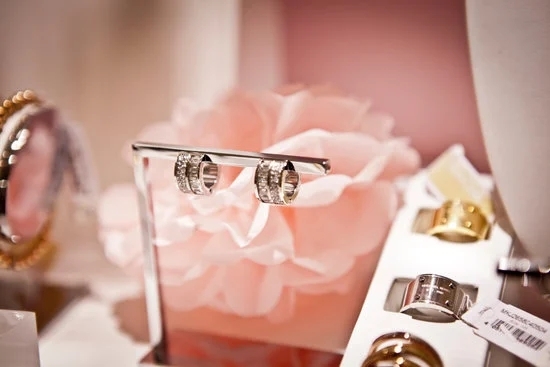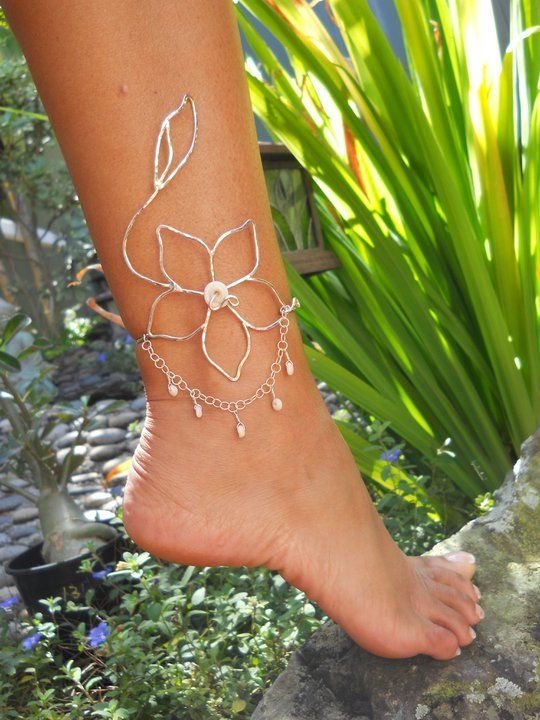Are you in the market for fine jewelry and considering a purchase from JCPenney? You may want to think again. In this blog post, we’ll explore the reasons why you should think twice before buying JCPenney fine jewelry. From quality concerns to ethical considerations, there are several factors that make purchasing jewelry from JCPenney a risky decision.
When it comes to purchasing fine jewelry, it’s crucial to consider the reputation and history of the brand. JCPenney has been a well-known retail brand for many years, but it’s essential to take a closer look at the overall reputation of the company before making a significant investment in their fine jewelry products. In this section, we will delve into the reputation of JCPenney as a retail brand and how it relates to their fine jewelry offerings.
Additionally, we’ll address specific quality issues that have been reported with JCPenney fine jewelry, including concerns about materials and craftsmanship. Understanding these quality concerns is crucial for consumers looking to make an informed decision about their jewelry purchases. Stay tuned as we explore these important considerations in detail.
Reputation of JCPenney
JCPenney is a well-known retail brand in the United States, with a long history dating back to 1902. The company has established itself as a major player in the retail industry, offering a wide range of products including clothing, home goods, and jewelry. However, when it comes to fine jewelry, there have been concerns about the reputation of JCPenney and the quality of their offerings.
While JCPenney has a strong presence in the market and a loyal customer base, their fine jewelry products have faced criticism in terms of durability and craftsmanship. Consumers have reported issues with stones falling out of settings, metal discoloration, and overall quality not meeting their expectations. This raises concerns about whether the reputation of JCPenney as a retailer translates to their fine jewelry offerings.
These quality concerns are important for consumers to consider when making purchasing decisions. When investing in fine jewelry, especially items meant to be worn daily or for special occasions, it’s crucial to prioritize quality and craftsmanship. While JCPenney may offer attractive designs and affordable prices, the potential risks associated with the lack of durability and material integrity should be taken into account by those considering purchasing from their fine jewelry collection.
| Reputation Information | Data |
|---|---|
| Company History | JCPenney was founded in 1902 |
| Quality Concerns | Issues with stones falling out of settings, metal discoloration reported by consumers |
Quality Concerns
Material Quality
One of the main concerns with JCPenney fine jewelry is the quality of the materials used in their products. Many customers have reported instances of tarnishing, discoloration, and even breakage shortly after purchasing items from their fine jewelry collection. This raises questions about the authenticity and durability of the materials being used in the production of these pieces.
Craftsmanship
In addition to material quality, there have been numerous complaints regarding the craftsmanship of JCPenney fine jewelry. Customers have noted issues such as loose stones, uneven settings, and poor finishing on their jewelry items. These reports suggest that there may be significant inconsistencies in the level of craftsmanship applied to these pieces, leading to a lack of overall quality and attention to detail.
Customer Experiences
Furthermore, when looking at customer experiences with JCPenney fine jewelry, it becomes clear that many individuals have faced frustration and disappointment after purchasing items from this collection. Stories of having to exchange or return multiple items due to quality issues are not uncommon, highlighting the widespread nature of these concerns. As a result, it’s crucial for potential buyers to consider these reported problems before making a decision to invest in JCPenney’s fine jewelry line.
In light of these quality concerns related to material and craftsmanship, it is important for consumers to carefully assess their options when considering purchasing fine jewelry. This section aims to shed light on the reported issues surrounding JCPenney fine jewelry and serves as a cautionary reminder about exercising vigilance when making such purchases.
Return and Exchange Policies
When it comes to buying jewelry, it’s essential to understand the return and exchange policies of the retailer. JCPenney’s return and exchange policies for fine jewelry should be carefully considered before making a purchase. Here are some important points to keep in mind:
- Return Policy: JCPenney offers a 60-day return policy for most jewelry purchases. This means that if you are not satisfied with your fine jewelry purchase, you can return it within 60 days of the original purchase date for a refund or exchange.
- Exclusions: It’s important to note that there are some exclusions to the return policy, such as final sale items or personalized jewelry. Additionally, any items that show signs of wear or have been altered in any way may not be eligible for return.
- Exchange Policy: If you receive a piece of fine jewelry from JCPenney as a gift and need to exchange it for a different size or style, the exchange process is relatively straightforward. You can visit any JCPenney store with the gift receipt and exchange the item within 60 days of the original purchase date.
When considering purchasing fine jewelry from JCPenney, it is crucial to carefully review and understand their return and exchange policies. While these policies may seem reasonable at first glance, there have been reports of customers experiencing difficulties when attempting to return or exchange items. Therefore, it is essential to weigh these potential issues before making a decision about buying JCPenney fine jewelry.
Overall, when it comes to purchasing fine jewelry, consumers should carefully consider all aspects of the buying process. From reputation and quality concerns to ethical considerations and return policies, each factor plays a crucial role in ensuring that customers feel confident in their purchases. For those seeking high-quality fine jewelry without potential issues related to returns or exchanges, exploring alternative options may be worth considering.
Ethical Considerations
When considering purchasing fine jewelry, it’s important to take into account the ethical considerations related to the production and sourcing of materials. Unfortunately, JCPenney has faced criticism in this area, leading to concerns about the ethical implications of buying their fine jewelry products. Reports have surfaced regarding questionable sourcing practices and working conditions in the supply chain of JCPenney’s fine jewelry.
One prominent issue is the lack of transparency in JCPenney’s supply chain for their fine jewelry. Without clear information on where their materials are sourced from, consumers are left in the dark about potential ethical concerns such as labor exploitation or environmental damage. In an era where consumers are increasingly conscious of the impact of their purchases, this lack of transparency can be a significant deterrent for those considering buying JCPenney fine jewelry.
In addition to transparency issues, there have been allegations of unethical sourcing practices within JCPenney’s supply chain. These include reports of unfair labor practices and environmentally damaging extraction methods for materials used in their fine jewelry products. In light of these concerns, many consumers are opting to seek out alternative brands that prioritize ethical and sustainable practices in their production processes.
Conclusion
In conclusion, it’s important to emphasize that the decision to advise against purchasing JCPenney fine jewelry is not made lightly. The reputation of JCPenney as a retail brand has been considered alongside specific quality concerns and ethical considerations related to the production and sourcing of materials for their jewelry. After careful examination of these factors, it becomes evident that there are significant concerns regarding the overall value and quality of JCPenney fine jewelry.
The reported quality issues with materials and craftsmanship, coupled with potential difficulties related to return and exchange policies, raise red flags for consumers seeking reliable and high-quality jewelry. These considerations highlight the need for alternative options that prioritize both quality and value for customers. It’s important for consumers to explore reputable jewelers known for their commitment to excellence in both craftsmanship and material sourcing.
In light of these findings, it is clear that there are numerous alternatives available in the marketplace that offer superior quality, more transparent sourcing practices, and better overall value than JCPenney fine jewelry. Consumers are encouraged to conduct thorough research before making any significant jewelry purchases to ensure they are getting the best possible products in terms of both quality and ethics.
In summary, don’t buy JCPenney fine jewelry; instead, consider reputable jewelers with a proven track record of excellence in the industry.
Frequently Asked Questions
Why Are JCPenney Rings So Cheap?
JCPenney’s rings may be priced lower than other retailers due to a combination of factors such as their business model, sourcing strategies, and target market. They may prioritize offering affordable options to appeal to a wider customer base and compete with other brands in the market.
Are Diamonds From Jcpenny Real?
The diamonds sold at JCPenney are indeed real. They typically offer a range of diamond jewelry that includes genuine diamonds, but the quality and size can vary based on the specific product and price point.
Why Is Department Store Jewelry So Cheap?
Department store jewelry can be cheaper compared to specialty stores or luxury brands due to economies of scale, bulk purchasing power, and efficient supply chain management. Additionally, they often cater to a more diverse customer base and aim to provide accessible options for a wide range of budgets.

Welcome to my jewelry blog! My name is Sarah and I am the owner of this blog.
I love making jewelry and sharing my creations with others.
So whether you’re someone who loves wearing jewelry yourself or simply enjoys learning about it, be sure to check out my blog for insightful posts on everything related to this exciting topic!





